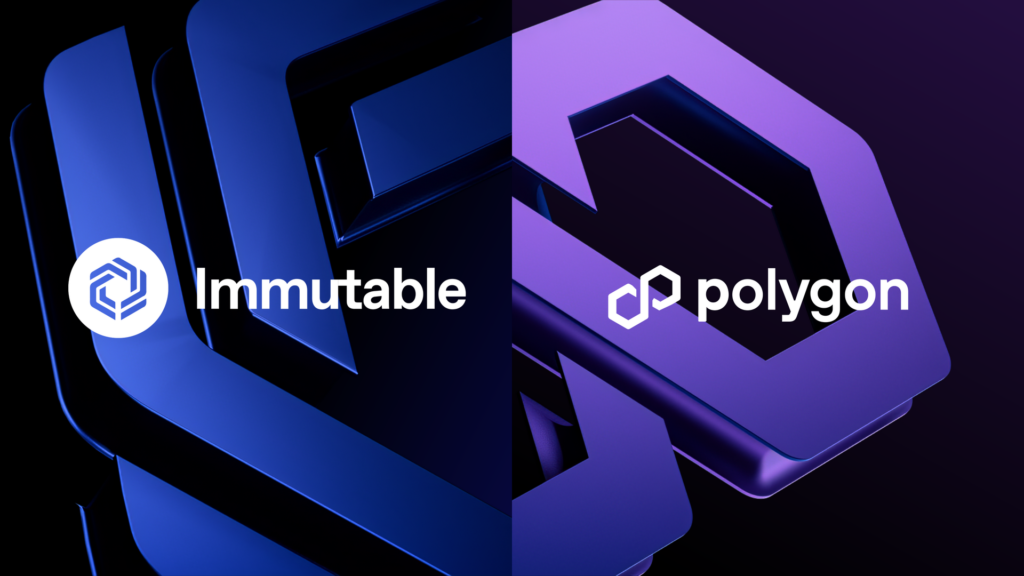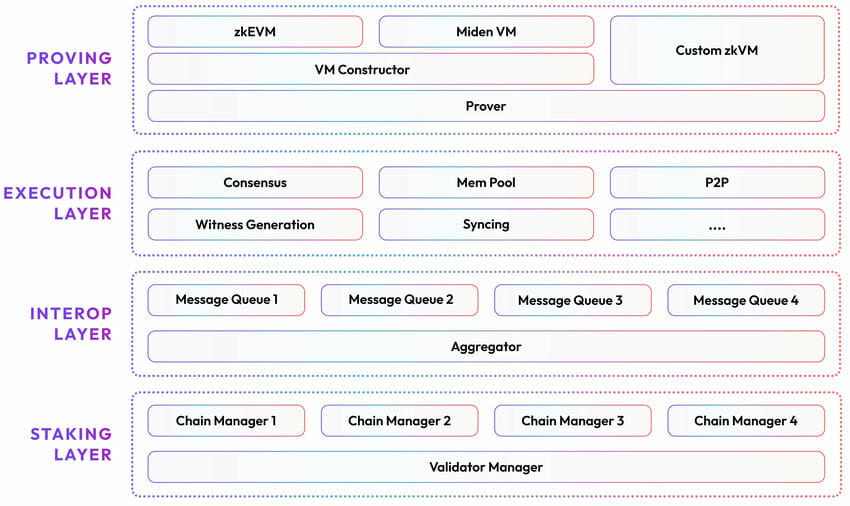Polygon is a popular Layer 2 (L2) chain compatible with the Ethereum Virtual Machine (EVM), used by developers to launch smart contracts and applications with lower gas fees.
Ethereum has firmly established itself as one of the leading blockchains for decentralized applications, particularly in the realm of web3 gaming. As a decentralized platform, Ethereum empowers the execution of smart contracts, which are self-enforcing agreements governed by code. This unique feature facilitates trustless and automated interactions between parties, enhancing the overall user experience.
On the other hand, Polygon, previously known as Matic Network, serves as a remarkable Layer 2 scaling solution designed specifically for Ethereum. By offering a swifter and more efficient method for transacting on the Ethereum network, Polygon has garnered significant attention as an alluring choice for web3 gaming enthusiasts. Notably, it presents lower transaction fees and faster confirmation times compared to the Ethereum blockchain, which can significantly enhance the performance and accessibility of NFT gaming experiences.
Ethereum vs. Polygon in crypto Gaming
Transaction fees wield significant influence in the development of NFT gaming platforms, shaping the user experience. Ethereum has faced criticism for its high transaction fees, particularly during peak network congestion. In contrast, Polygon stands out for its substantially lower transaction fees, owing to its role as a Layer 2 solution for Ethereum, enabling off-chain transaction processing with settlement on the Ethereum mainnet.
Ethereum’s transaction fees are dictated by the gas limit and gas price. During network congestion, the gas price can surge, resulting in exorbitant transaction costs that frustrate gamers seeking swift and efficient transactions.
Polygon has emerged as a favored option for web3 gaming, thanks to its implementation of a Proof-of-Stake consensus mechanism and Layer 2 solution for Ethereum, allowing for faster and more cost-effective transactions. Additionally, Polygon offers the MATIC gas token, a means to pay for transaction fees on the network.
Apart from fees, transaction speed also significantly influences the web3 gaming experience. Ethereum has faced scrutiny over its slower transaction times, which can range from a few seconds to several minutes due to the sequential processing of transactions on its blockchain. This sequential processing, especially during periods of heightened activity, can lead to network congestion, causing slower transaction times and increased fees.
Polygon on a mission to onboard 100 million gamers
In the gaming industry Polygon is becoming more popular too, since it allows to keep costs down for both the game studio and the gamers playing their videogames. It’s a clear mission of Polygon that they want to bring the next 100 million gamers to web3. In a recent move Web3 gaming firm Immutable partnered with Polygon to further strengthen their positions in the web3 gaming industry. Due to the scaling limitations of Ethereum, layer-2 blockchains are increasingly being adopted.
Immutable partners with Polygon
In a groundbreaking move set to revolutionize the blockchain landscape, Immutable has introduced its cutting-edge zero-knowledge Ethereum Virtual Machine (zkEVM). This innovative virtual machine leverages data compression to bolster both scalability and security within the Ethereum network. The driving force behind this technological marvel is none other than Polygon’s advanced infrastructure, which seamlessly integrates with the platform.

Polygon’s zkEVM
By harnessing Polygon’s zkEVM scaling technology, the collaboration endeavors to achieve a paramount objective: reducing transaction costs significantly, while ensuring utmost compatibility and security with Ethereum’s fundamental layer-1 blockchain. This strategic partnership holds the key to unlocking the blockchain’s long-term growth and fortifying its ever-expanding ecosystem.
Polygon Labs
Polygon Labs, the driving force behind the decentralized Polygon protocol, boasts an impressive track record of collaborations with renowned gaming companies such as Square Enix, Neowiz, Midnight Society, Plai Labs, and Tilting Point. Their layer-2 scaling solution has witnessed remarkable adoption, with tens of thousands of decentralized apps successfully deployed, serving over 220 million unique addresses, deploying more than 1 million smart contracts, and processing billions of transactions since its inception.
Aave, Uniswap, and OpenSea
Notably, the Polygon network has seamlessly integrated into prominent crypto projects like Aave, Uniswap, and OpenSea, as well as esteemed enterprises including Robinhood, Stripe, and Adobe, adding to its already extensive reach. Furthermore, the Polygon network stands tall as the host of some of the most significant web3 gaming projects and publishers, including Ubisoft, Atari, Animoca Brands, Decentraland, and Sandbox, among others.
Global brands find Polygon
Over the past year, Polygon has forged partnerships with major brands such as Starbucks, leveraging its Odyssey digital collectible rewards program, and collaborated with Disney through its accelerator program. Not stopping there, the blockchain has seen major clothing brands like Prada and Adidas launch their own NFT projects on its platform, solidifying its position as an influential player in the blockchain space.
The Vision of Polygon 2.0: Empowering the “Value Layer of the Internet”
Polygon 2.0 stands as an ambitious upgrade to the Polygon Network, poised to redefine its role as the “Value Layer of the Internet.” This transformative protocol aims to revolutionize the way users interact with value, mirroring how information is handled on the internet, but within a decentralized framework.
Embracing digital ownership, decentralized finance, and novel coordination mechanisms, Polygon 2.0 will empower individuals worldwide to participate in the global economy on an unprecedented scale.
At its core, Polygon 2.0 seeks to reimagine the very foundations of the Polygon network, encompassing governance and tokenomics. By tackling the inherent challenges faced by existing blockchains, particularly limitations in network throughput and scalability, this upgrade endeavors to unlock new realms of possibility for users and developers alike.

Unleashing Enhanced Security and Scalability
Starting with the Proving Layer, Polygon 2.0 introduces a vital component that generates proofs for internal and cross-chain transactions within each Polygon chain. This layer encompasses a “common prover” responsible for seamless proof aggregation and verification, a “state machine” that simulates the execution environment, and a “constructor” catering to developers’ needs.
Next, let’s delve into the Execution Layer, where Polygon chains process blocks in a manner similar to Ethereum. This layer hosts multiple essential components, including P2P, consensus, mempool databases, and witness generators, contributing to the network’s efficiency and performance.
Moving on to the Interoperability Layer, Polygon 2.0 establishes connections between all Polygon chains through innovative bridges. Moreover, an aggregator streamlines zero-knowledge proofs, consolidating them into a single proof sent efficiently to the Ethereum blockchain.
Finally, we have the Staking Layer, built upon the existing framework, featuring a “validator manager” contract on the Ethereum blockchain, and a dedicated “chain manager” for each Polygon chain. This layer manages the validators’ registry, processes their requests, and promptly addresses slashing events.
Polygon Labs envisions this four-layered structure, culminating in zk-powered Layer 2 chains, functioning cohesively through a cross-chain coordination protocol. The result is a unified network that offers unlimited scalability and seamless user experiences, revolutionizing the future of blockchain technology.


